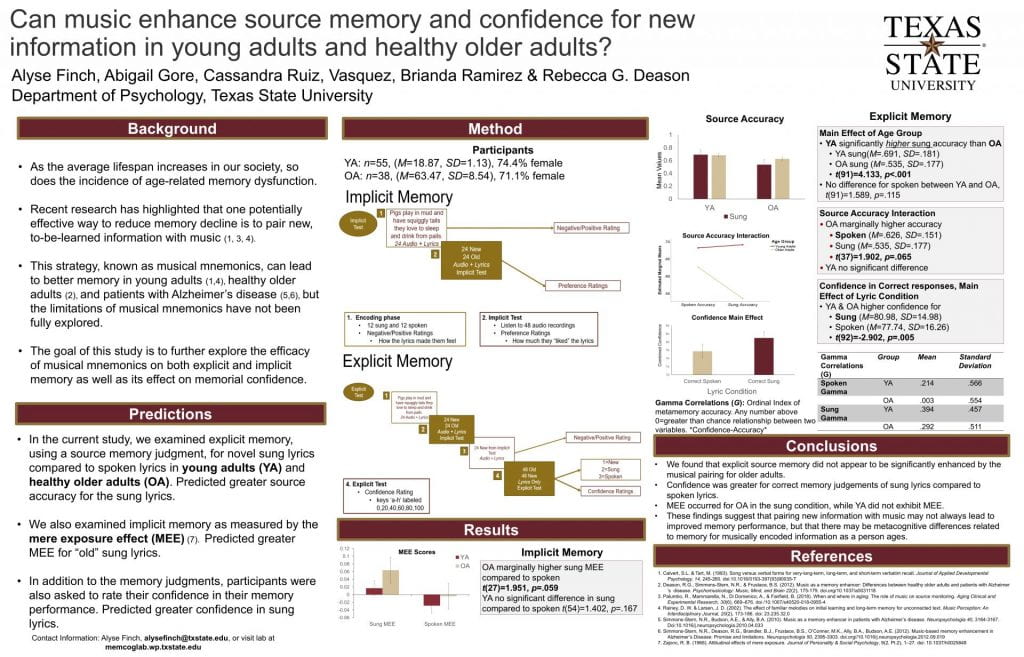Can music enhance source memory and confidence for new information in young adults and healthy older adults?
Principle Author
Alyse Finch
Graduate
Co-Author(s)
Abigail Gore, Cassandra Ruiz, Vasquez, Brianda Ramirez & Rebecca G. Deason
Abstract
Past research into the use of musical mnemonics as an aid in memory enhancement has been somewhat limited and produced inconsistent results. The current study examined young adults and healthy older adults, with the goal of adding to the growing literature about the potential for music as a memory enhancer by investigating both explicit and implicit memory by presenting participants with sung and spoken stimuli. To investigate the effects of music on implicit memory, the mere exposure effect (MEE), or the tendency to like items previously encountered more than new items, was explored. Source memory and confidence ratings for explicit recognition memory judgments were also examined. For explicit memory, young adults were better at recognizing the sung recordings than the older adults, but there was little evidence of a memory benefit for sung compared to spoken conditions despite increased confidence in sung memory judgments for both groups. The mere exposure effect was found in the older adult group for the sung condition; however, young adults did not exhibit MEE for either condition. These results offer insight into how learning and memory differ between young adults and healthy older adults as well as provide more information about the potential of music as a memory enhancer.

Thanks for finally writing about > Can music enhance source
memory and confidence for new information in young adults and healthy
older adults? – Psychology Digital Student Poster Showcase
2020 bank338
Thanks for finally talking about > Can music enhance source memory and confidence for
new information in young adults and healthy older adults?
– Psychology Digital Student Poster Showcase 2020 Menang303